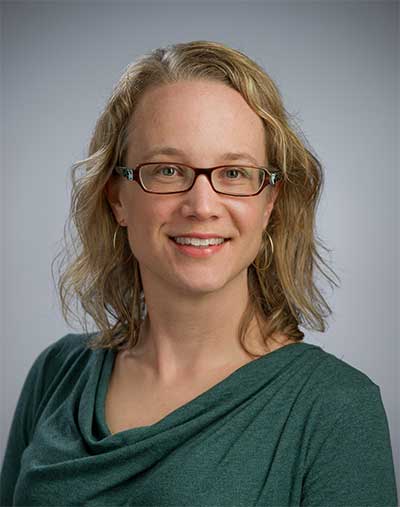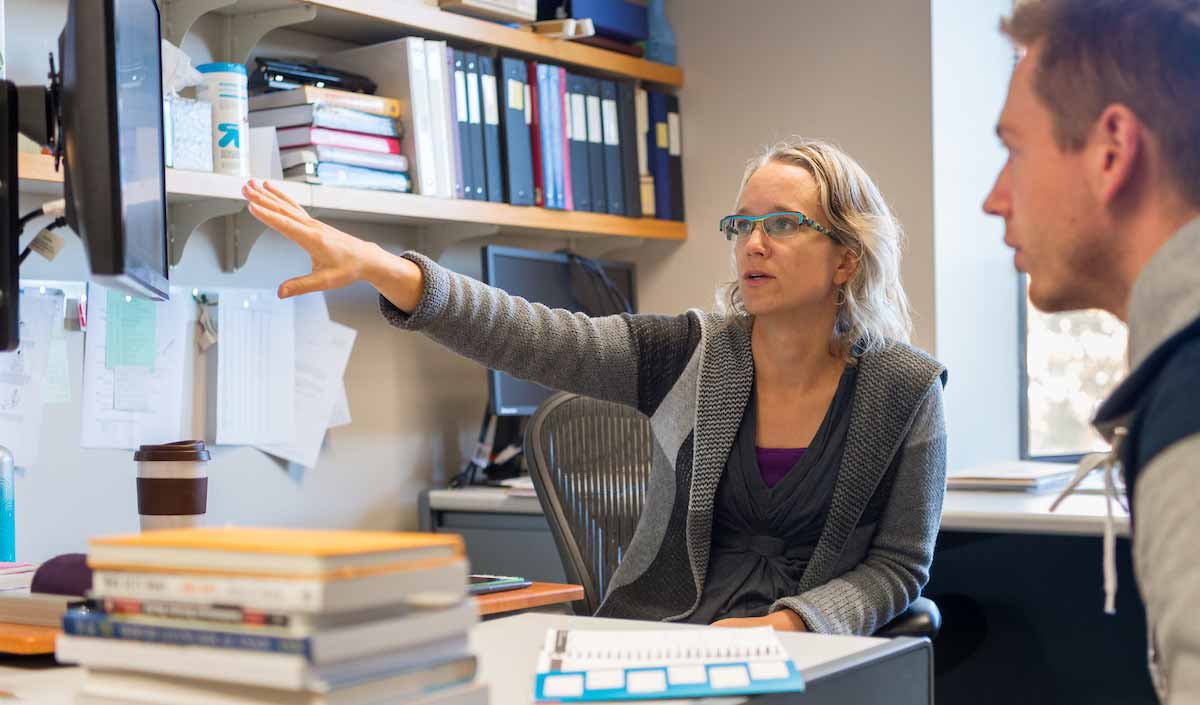Drivers get angry when they face massive road projects that shrink available lanes and cause major backups during the heart of road trip season. What is the government doing? Why are they torturing us?
But not Abigail Wozniak, a labor market economist at Notre Dame. Even when stuck in traffic and detours during a major project in downtown South Bend, Wozniak is instead impressed that city leaders thought through a project they knew would inconvenience people. Businesses will be hurt, but at least construction employment will get a bump – and the research must have shown the final effect would be worth the hassle.

“It’s a good example of competing interests – some people will benefit, others will face challenges,” she said. “So how can we do this project and try to have the net impact be as positive as it can be?”
Wozniak said an insider’s view of the federal government helped change her outlook on the price of progress, despite the general rage against Washington shown in election season. She was one of about 10 senior economists who spent the 2014-15 academic year giving non-partisan expert advice to the White House as part of the Council of Economic Advisers.
“I thought I’d come away disillusioned in one way or another, and I really didn’t,” Wozniak said recently, now a year removed from her year in D.C. “I was pleasantly surprised by how hard everyone works, how genuine they are, and how relatively efficient the whole operation can be.”
Wozniak said the public perceives the slow pace of policy change because they don’t always see the validity of different interests behind the scenes. Powerful forces do put up walls – business interests, legal precedent, voter preference – that need to be considered alongside the pure economic impact. For example, she worked on efforts to extend the Fair Labor Standards Act to home health aid workers. When the legislation was drafted after the Great Depression, relatives or church members volunteered to care for the elderly in homes. Like a teenage babysitter, they were not covered on purpose to allow flexibility.
But today, businesses hire trained nursing professionals for full-time jobs caring for the elderly, so it seems obvious they should be eligible for minimum wage, overtime and other labor standards. On the other side, state Medicaid programs pay for nursing assistance, so significant taxpayer money is on the line. Some people find that more important than new protections.
“Both of those are really important,” Wozniak said. “How do you protect these workers, while at the same time taking the cost of that action into account? It gets really difficult to think of how to thread that needle.”
Wozniak said she has always enjoyed researching these kinds of conundrums. She grew up in Green Bay, Wis., and earned economics degrees from the University of Chicago and Harvard. She was drawn to economics because the challenge of economic competition from Japan then demanded a U.S. response.
“If you were a high school student in the U.S. in those years (1980s and 1990s), you heard a lot about how we had to do more to keep up,” she said. “I was always really interested in group behavior, and I liked the mathematical aspect that economics brought to that.”
At Chicago, she studied under Sherwin Rosen, one of the first thinkers to formalize labor economics models and theory and bring data to that discipline. She knew immediately that it was the field for her. Her first job out of graduate school was at Notre Dame, where she appreciates the quality of the students and the excitement of working in an expanding department.

Wozniak didn’t know she was being considered for the Council of Economic Advisers until the chief of staff invited her to interview. “It’s not something you apply for,” she said of the selection process. “It’s more of them thinking about who they need. But I always thought it would be interesting because it’s a rare opportunity to do public service that is very related to my expertise.”
Most specialists are called in for particular projects or to testify before Congress, but economists have a standing board to advise the president. Congress founded the Council after the Depression because the economy was too vital a subject for the president to get information from vested interests. By bringing in academics without a stake or bureaucratic career, the idea was to provide impartial advice for presidential decisions.
While the selection process is mysterious, Wozniak figures Council members were interested in her work looking at labor market fluidity. She and several co-authors were among the first to document and study how the volume of job changes and other transitions have declined over the last three or four decades in the United States.
“We don’t know why people aren’t changing jobs as much, but we’ve ruled out a lot of explanations,” she said. Factors like the aging workforce, rising inequality and health care may have mitigated the decline rather than caused it, she said, but she and her colleagues are now researching changes inside companies for potential causes.
Wozniak said she had few expectations going in, but was not surprised to find the pace much faster than academia. A long project at the Council lasted a month or two, while university research projects often last four of five years. The work hours were long, with pressure to finish and get an answer quickly. Wozniak said she liked the fast turnaround, but also values the depth that more time allows. They weren’t always able to provide answers because the data didn’t exist, and academic research often provides that data.
There is some seasonality to the Council’s work, Wozniak said. In the fall, the federal budget dictates lots of research and meetings about what the White House will propose. Around the winter holidays, attention turns to the State of the Union address and its economic report. In the spring, the Council focused on the impact of executive orders such as occupational licensing and overtime eligibility. Each month, the group analyzed employment reports.
Wozniak said she made it her role to work on initiatives related to disadvantaged populations, such as minorities and ex-convicts. She analyzed and championed efforts such as My Brother’s Keeper, a coordinated effort to address opportunity gaps for young men of color; and Ban the Box, an order making many federal jobs drop the box on applications indicating past incarceration.
She also got to present her analysis on the labor market recovery to President Obama on one occasion. She was lucky because a snowstorm officially shut down the government on the day of the meeting, so there was extra time and they talked for a while. Since the Council office is on the White House grounds, she walked over with the three appointed members and chief of staff to meet with Obama and Vice President Biden in the Oval Office. Both listened intently and asked a number of questions. “It was pretty surreal,” she said.
Still, one year was enough.
“I told a couple of people it’s sort of like camp. It’s awesome while you’re there and it’s really fun, but no one can actually live there,” Wozniak said. “There are a few diehard people who do — the camp director, for example — but most people have to go back to their regular life.”
Wozniak said the year in Washington will have a lasting effect. She was pleasantly surprised to discover how much people care about research to inform policy decisions. “There really is an appetite for ‘What does the research say?’” she said. “That’s refreshing, that’s motivating.”
Even more directly, she offered a new class last year that did policy advising for the City of South Bend. She and 13 seminar students worked with the city’s economic development officer to dig into labor participation, obstacles to work and links to poverty. They created a report and suggestions to share with the city and other local officials. So she knows those traffic projects have been thoroughly vetted too.
At the same time, she can offer a different perspective when a faculty meeting gets bogged down over some minutia. “I joke with people that I now know you can decide something of national importance in a half an hour – we can affect millions of people and not just 15 faculty,” she said. “That’s opened the curtain a little bit.”